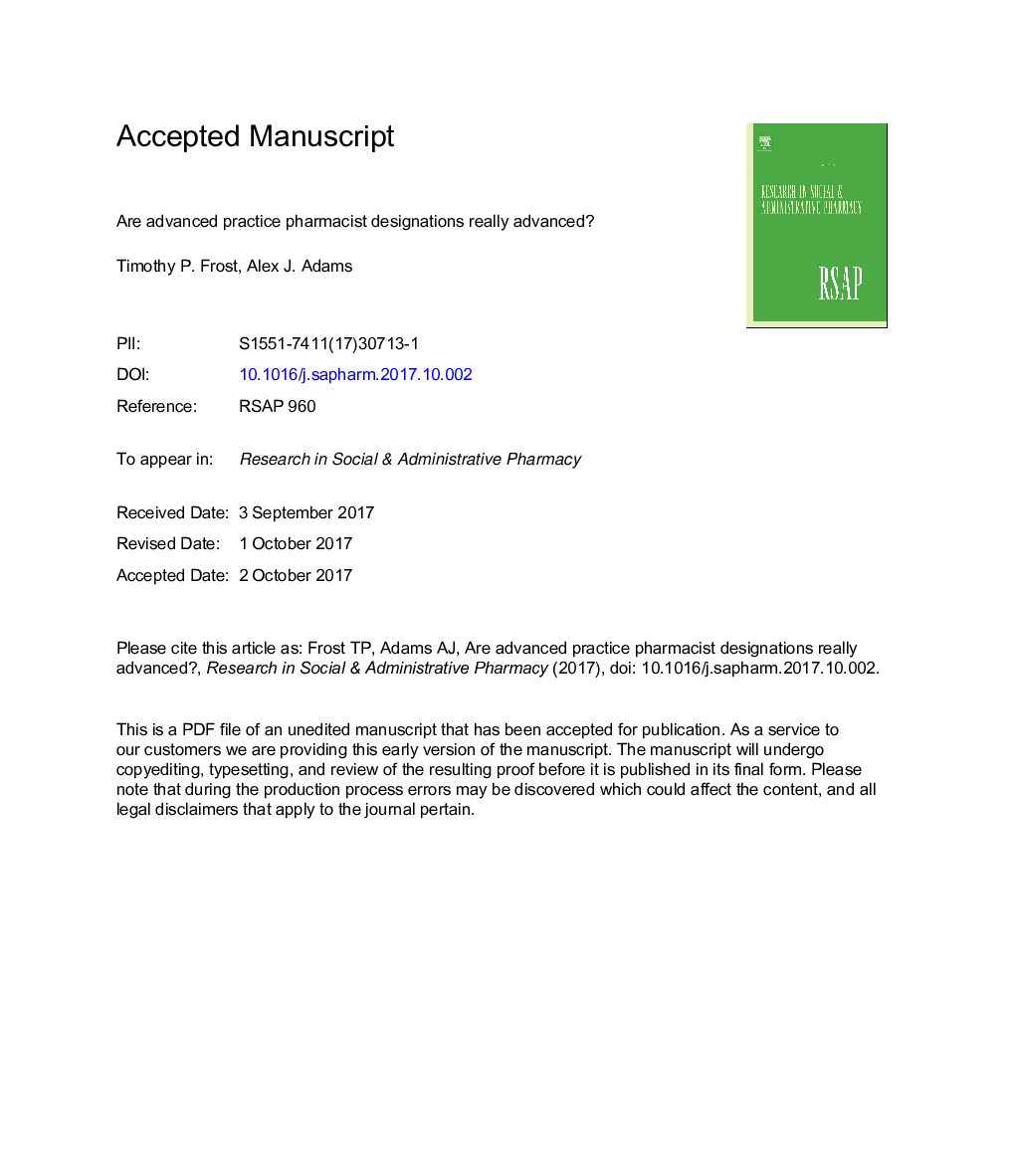| Article ID | Journal | Published Year | Pages | File Type |
|---|---|---|---|---|
| 8521823 | Research in Social and Administrative Pharmacy | 2018 | 22 Pages |
Abstract
Four states have created advanced practice pharmacist designations in state law: advanced practice pharmacist (California), clinical pharmacist practitioner (Montana and North Carolina), and pharmacist clinician (New Mexico). To attain an advanced pharmacist designation, states typically require a fee and set a minimum education requirement either through continuing pharmacy education (CPE) or through attainment of a national certification or completion of a residency. Once attained, pharmacists may practice with additional scope of practice authorities, namely the ability to order and interpret drug therapy-related tests, and initiate or adjust/modify medications under a collaborative practice agreement (CPA). Uptake of advanced practice pharmacist designations has been light (range: 0.35%-9.8%). The additional scope of practice authority is on par with, and in some instances more restrictive than, other states with fewer barriers to entry. As such, the excitement surrounding advanced pharmacist designations may be disproportionate to the actual scope of practice gains when compared to other existing state laws.
Related Topics
Health Sciences
Medicine and Dentistry
Public Health and Health Policy
Authors
Timothy P. Frost, Alex J. Adams,
